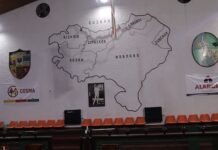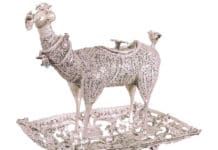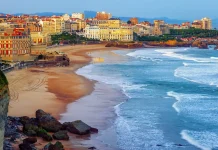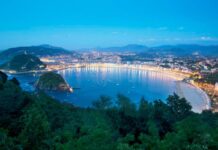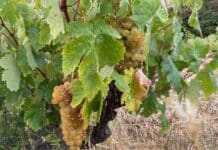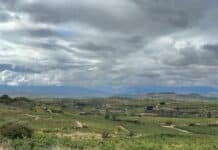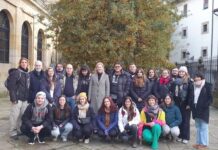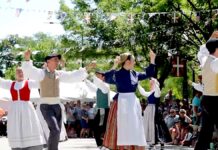This article was translated by John R. Bopp
In the last few days, we’ve received some comments on an article we published which have made us stop and think, not because the content of that comment deserves any analysis, but because we’ve spent the past few days wondering if we accepted that comment and if we were going to respond.
Among this website’s basic principles is that we will not accept racist, sexist, xenophobic, or personally offensive comments. We do accept criticism, even hard criticism of our actions, but nothing that personal attacks, nor any attacks based on matters of race, sex, social status, or religion. That’s why we’ve been thinking about this comment, and ended up decided that it deserved being commented on, specifically because of the importance of the matter it touches on.
The comment we received was regarding our entry on the Noka group, and is as follows*:
Not everything is acceptable… its clear like obama said that “the only ones who populated the americas since time immemorial are the american indians of north america, the rest of us arrived not long ago and yet were 99.9% of the population of the united states”.
My beliefs tell me that the son of a Basque woman and man will be Basque, whether he was born in leiza or in kansas city, but, that a mestizo like John Garamendi McSorley, the product of a mixing between a Basque man and an Italian-Irish woman, considers himself Basque is alarming… at this rate esperanza agirre will claim her Basque-ness much to many peoples surprise because she had some Basque ancestor in her paternal lineage, that way anyone should be able to consider themselves Basque, or as the Catalans say, “anyone who wants to be Basque is”… or as Spanish law says “Spanish nationality must be given to anyone who has lived in Spain for over ten years and so desires”… i wonder why Garamendi considers himself Basque and not Irish, or Italian, sure, your from where your raised, and Basque if you speak Basque and Japanese if you speak Japanese…someday were going to need to define who is of the Basque people… until then it seems that WERE ALL BASQUES… just because your born in Inuit territory doesn’t make you Inuit, thats pretty clear, even if you assimilate their culture, even if you mix in, youll always be a mestizo, people used to have a clear idea about that, but now talking about races and ethnicities is taboo because it seems that anyone is what they want to be, all the Galicians who live in Basque lands say their Basques like anyone else, but then they go on vacation to Galicia and there proud to be Galician, many people with double nationality, who dont know what they are, or what they want to be, mestizos searching for an identity, what they dont know is that a mestizo doesnt have identity BECAUSE HES A MESTIZO he doesnt have any identity at all and he has all of them at the same time…all i ask is that in 500 years there are still communities of aboriginal Basques, since all the rest will have too many nationalities in their blood to know which is theirs, mestizo citizens of the world versus aboriginal citizens, respect and cohabitation or assimilation en integration of the indigenous into mixing… the last european indigenous population about to disappear… but, some will still be defending the existence of unified basque, when all the indigenous ones die out some mestizo will realize that its silly to have a language without a people, without a nation that sustains it, when they can use other languages why would they use basque if they themselves arent even basque… and thats how a language will die out once the ethnicity has died out, a people and a culture, because the people didnt protect themselves and the ethnicity that gave rise to this culture and this language.
After reading this, we believe that this needs, nay, demands, a comment back.
The feeling of belonging is not granted by blood or genetics. Forming part of a Community is a choice, and not an obligation defined by some inherited predisposition. Being Basque is a consequence of learning and of a personal decision, just like being Spanish, or Russian.
The history of the Basque People is full of people who’s 28 surnames** were Basque, descendants of Aitor himself, who did everything they could to end the Basque people. Meanwhile, others, with surnames from Castile, Galicia, Catalonia, Italy, German, or sub-Saharan Africa, throughout history and in the present, are determined to build up the Basque Homeland.
The absurd and unacceptable principle of using blood, race, and genetics to determine if one belongs to a community or not can lead to boys and girls who were adopted from elsewhere, who speak Basque and who consciously believe themselves to belong to the Basque community, to being seen as foreigners, invaders, and even dangerous contaminants of the purity of the Basque ethnicity by people like the one who wrote this comment.
The Basque Country we have today was and is being built, brick by brick, by all those who throughout history have struggled to get ahead and to make up a part of this community. It is true that, in the years bridging the nineteenth and twentieth centuries, a kind of Basque nationalism that was based on ethnicity was developed. But it was a vision similar to that which spread throughout Europe and which was much less radical than other racist movements that took over too many European mindsets and ended up with the German Nationalist Socialist movement or the Spanish totalitarian movements.
This vision changed in the 1920s, allowing Basque Nationalism to become immune to the racist hurricane that took Europe over in those and the following years. In those Basque nationalist battalions during the Spanish Civil War, we can find surnames from the Basque Country, Andalusia, Galicia, or even Basque-descendants from other countries. How is it possible that, if they felt Basque, anyone today could dare deny those gudaris their belonging to the Basque People? Does anyone have the right to deny their right to belong to the Basque People to any of those gudaris of Galician origin who were part of the crews of the Armada Auxiliar de Euzkadi, and who, under the ikurriña and the orders of Lehendakari Aguirre, gave their lives at the Battle of Cape Matxitxako? Who could deny Commander Enrique Moreno, born in La Unión, Murcia, who, in that battle, preferred to sink with the ship Nabarra that he captained rather than surrender to the enemies of the Basque People, his right to consider himself Basque if he so chose? Who can deny the descendants of the Basques in South America, the Philippines, or the United States their right to belong to the community of the Basque nation their rights?
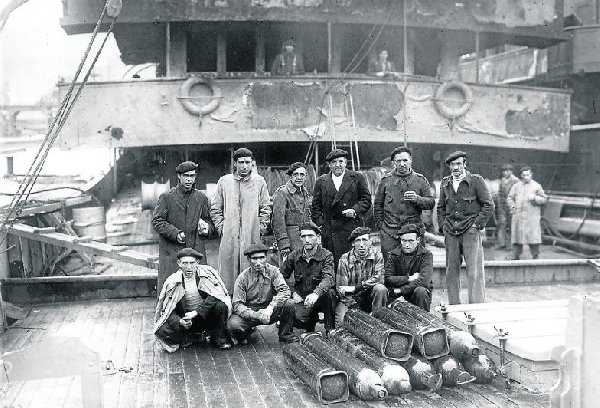

In the photo: crewmen of the ship ‘Gipuzkoa’ after a battle; in the long coat, Commander Galdós (photo Deia)
Who determines who belongs or not to a Community? That, ladies and gentlemen, is the crux of all fascist and totalitarian movements. Basque nationalism rid itself of that years ago. Even so, we still have to live with some who have not been able to free their minds of the cobwebs caused by thinking 19th century ideas in the 21st.
It’s also true that only those who have their Basque surnames** can think along those lines. These are people whose only added value is having a mother and a father; ideological monarchs. Well, excuse me, but we need to remember something: it is not the surnames that honor a person, but the person who honors the surnames.
Who then, if not a lowly miser, dares to deny their sense of belonging to this People to all those emigrants who fought for years to recover the rights of this People? Who can deny them this right, won by force, to those who raised their children to love the Basque Country, to love their homeland? To feel Basque is not a feeling of exclusivity. The only thing incompatible with feeling a part of a community is denying rights to the Basque People. Because being part of a people is determined by the Will to Belong. A Spaniard with Basque surnames is not obligated to be Basque, and a Basque with foreign surnames is not excluded from the Community because of his surnames.
We’re done explaining the obvious. But we can’t resist reminding our readers of something we wrote about in an entry on the Aberri Eguna. In it, we included a statement, the oath, taken by many Basques to commemorate the hundredth anniversary of the creation of the Basque Nationalist political movement by Sabino Arana y Goiri. The ninth point of that statement is:
We accept as a brother anyone, wherever he may be from, who wishes to share with us the luck of our people.
A free People, made up of free people
Health and a Basque Republic
Gora Euzkadi Azkatuta!
*Translator’s note: This is a faithful translation of the original comments in Spanish, adapted to a similar style that would be found in English, in order to reflect the kind of spelling and grammatical mistakes that were made in the original Spanish.
**On the Iberian peninsula, people traditionally and legally use two surnames, that of their father and that of their mother. However, the list can be extended indefinitely: the father’s mother’s surname, the mother’s mother’s surname, the father’s mother’s mother’s surname, etc., etc. Most only go so far as eight, up to their great-grandparents’ surnames. Some use the fact that many or all of their surnames are Basque to identify themselves as somehow more purely Basque. See Wikipedia for more info about how Iberian surnames work.
Last Updated on Jan 25, 2021 by About Basque Country




